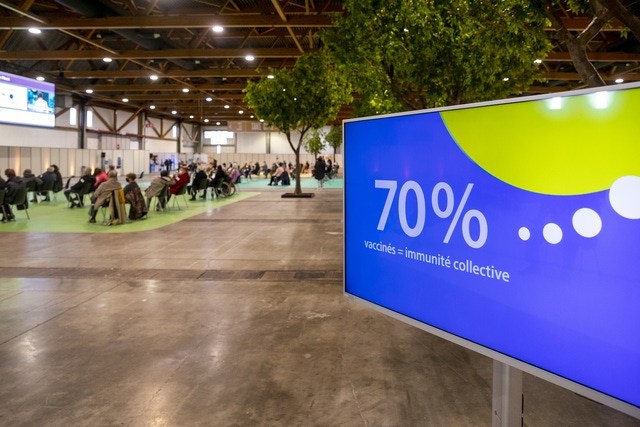Studies examining the reasons behind vaccine hesitancy in Brussels are underway, according to Brussels Health Minister Alain Maron (Ecolo).
Brussels vaccination rates have lagged behind the rest of the country throughout the pandemic, with only a little over half (56 percent) the residents of the Belgian capital having received a first shot of a Covid-19 vaccine.
Plans to increase the vaccination rate were developed back in August, and Bianca Debaets (CD&V) cited the fact that “no city in Western Europe does worse than Brussels,” calling it “shameful.”
They set the goal of a 65 percent vaccination rate (first shot) for the city by the end of October, still far behind what Flanders (86 percent) and Wallonia (76 percent) have achieved.
Now, two weeks before the deadline, the number for Brussels has only risen from 50 to 56 percent.
“The Flemish vaccination campaign is going extremely well. Internationally, Flanders is at the top. Nobody would have dared to predict this beforehand,” Maron told Bruzz.
“This has to do with good first-line care, to start. In that field, Brussels is ten years behind.”
Related News
He says there’s more than just the urban context to take into account when answering for the slow vaccination rate, especially considering other European cities are scoring much higher than Brussels.
“The vaccination rate [in Brussels] is too low,” Maron said. “But only two cities are more cosmopolitan than Brussels. Moreover, one third of the inhabitants are at risk of poverty or social exclusion. There are not that many capital cities with these problems.”
Maron says he wants things to move faster.
“It takes a lot of work, but little by little we are increasing the vaccination rate. Every day we carry out 20 to 30 decentralised actions, mainly in the neighbourhoods. We involve youth organisations, because they know the young people. We contact them to inform and convince them. This takes time, but it is the only way.”
The studies underway hope to discover more precise reasons behind why young people in particular are reluctant to be vaccinated. The idea is that once the reasons are known, they can be better addressed with awareness campaigns that ultimately raise the overall vaccination rate in Brussels.
“The results are not yet known,” said Maron, “but it is important that we know in detail why the vaccine is refused.”

